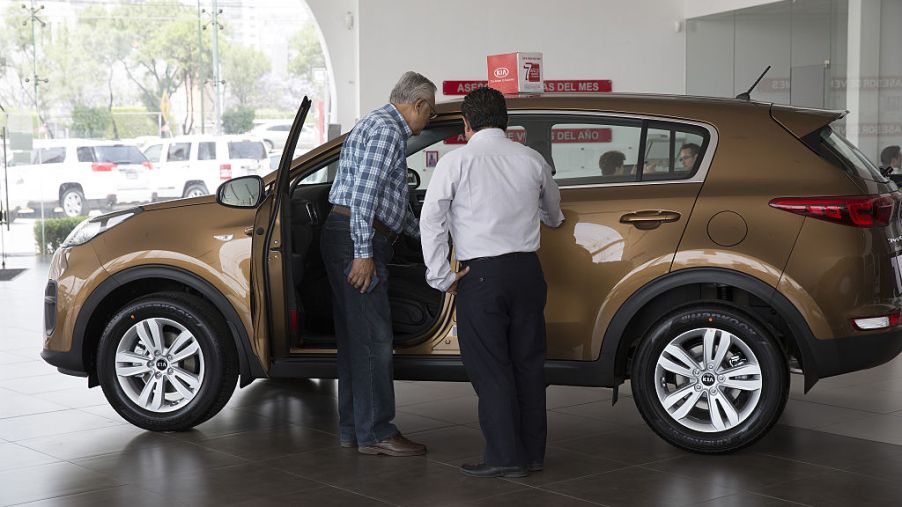
Avoid These Dealership Add-Ons at All Costs
When you purchase a vehicle from the dealership, a lot more goes into the price tag than the purchase price. Aside from taxes and other fees, dealerships often try to sell you other options as well.
Since making money is in the dealership’s best interest, many of these options, accessories, and add-ons may not be completely necessary. To help avoid paying for something you don’t need, be wary of the following car dealership add-ons.
Why car dealership add-ons are a tricky business and the five you should be most cautious of
Once you’ve found the car of your dreams and you’re ready to make the purchase, the car dealership will take you inside to start the financial paperwork. According to U.S. News Cars, this part of the car-buying experience is often when honest car-buyers lose and dealerships make their profit.
Many add-ons and options can be added to your car’s price tag. These will likely be offered to you in ways that make you believe you really need them. But some of these add-ons can be found cheaper outside the dealership, while others may be disregarded altogether.
By paying more attention to what your dealership is adding to your purchase price, you could potentially save yourself from tremendous expenses. These five add-ons should be the first to watch out for:
Protection on paint and fabric
Car dealerships often offer various types of paint, body, and fabric protection as add-on options. Though it may seem smart to a car buyer to prolong the life of the exterior and interior of the car, these add-ons may simply be a way for dealerships to make money.
According to Motor Trend, options like paint sealant (paint doesn’t need to be sealed) and rust-proofing (all cars are essentially rust-proof) don’t do much for the vehicle in the end and should be removed from your purchase price.
VIN or window etching
This add-on is often offered to car buyers as a preventative measure. A dealership may tell you that by etching your VIN (vehicle identification number) into the window glass, it will be less likely to be stolen by thieves. The thief would need to replace all the window glass before getting rid of it.
The dealership may also say that window etching makes a stolen vehicle easier to find. But should your vehicle get stolen, the thieves will most likely not even look at the window etching. And statistically speaking, your car may never get stolen at all. The additional cost to your purchase simply may not be worth it.
Extended warranties
Most car dealerships offer a type of extended warranty on their vehicles, which provides coverage for certain things after the standard warranty from the manufacturer ends.
It can also be called vehicle service contracts or vehicle protection plans. In the event that something should go wrong with your vehicle, the extended warranty could come in handy. The catch, however, is that most extended warranties also come with heavy fine print and massive markups. This means that may not be worth it in the end.
It’s important to remember that extended warranties do not have to be purchased with a vehicle and that it can even be purchased outside the car dealership, through various lenders and insurance agencies.
Gap insurance
If you total your vehicle and you owe more on it than it is worth, you would not have enough money to pay off your loan and you would be responsible for filling in the “gap.” Gap insurance ensures you aren’t in this situation.
While gap insurance is not a bad idea for some people, it’s important to reduce the total cost of gap insurance by finding a policy elsewhere. The car dealership will do its best to mark up the prices on gap insurance, ensuring you pay more than necessary. It is important to note, however, that gap insurance is most likely to be required on leased vehicles and included in the monthly payment.
Tire and wheel packages
Options and add-ons for a vehicle’s tires and wheels are one of the newest and popular ways a dealership can supplement their purchase price. These options can feel worth it in the beginning. But often it will be an unnecessary expense.
Filling your tires with nitrogen, for instance, can seem like a luxurious upgrade, but according to Edmunds, “isn’t really worth it, especially given that plain old air is free.”


